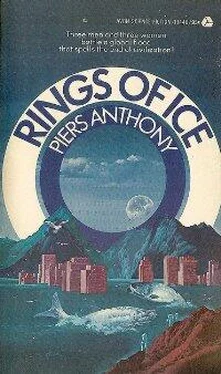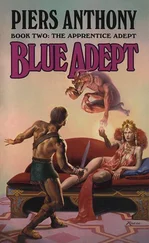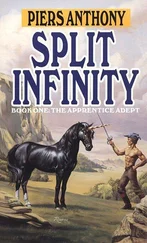“Let’s get those tires fixed before the ambushers come back,” Gus said. “You see, I was right.”
Thatch already had a wrench. He went to the front.
“And post a guard!” Gus said.
“I’ll stand guard,” Zena said.
“Better be a man,” Gus said. “One look at your silhouette and they’ll jump you.”
“Leave my silhouette out of this!” Zena snapped, realizing that her shirt had been torn in the fray. “But I don’t think they’ll be back.”
Gordon came up with a broom. “I want to be sure that road is clean.”
Zena could tell just by walking that nails were scattered across the highway. This had been an ambush, all right. Probably the men had slept nearby, waiting for the sound of blowouts. Lucky they hadn’t had guns.
Gordon came up to her. “Take this,” he said, putting something into her hand. It was a hatpin—the wickedest she had ever held. The point was super-sharp, and the thing was a good eight inches long.
“Remind me never to fight with Gloria!” she said.
“Don’t fight with Floy either,” he murmured. “I believe her coordination improves when she acts instinctively— and she has a killer instinct, same as that cat.” He moved on, carefully sweeping the wet pavement.
Yes indeed, she thought. Innocent, clumsy little Floy— and a scream in the night, part beast, part human agony. A girl licking off her fingers, and a cat chewing contentedly on an eyeball. That pair could take care of themselves.
Gloria, too, with her murderous hatpin. How quickly the predator manifested in adversity!
But she had to give Gus credit too. He had been the first to suspect the ambush. And the first to gird for an indefinite rain, by setting up with the bus and heading for high ground. And he had been right twice about the perils of turning back—for any reason. He had his faults, which were colossal—but he also possessed those devious qualities of leadership and foresight necessary to form this group and get it to safety in time.
In fact, this ill-matched little party might be destined for survival after all.
It looked as though Thatch were finishing up, so she went over. “Did you speak to Gus about Karen?” she asked.
“Yes.” He knocked a nut tight and stood up, pocketing a patching kit. It must have been quite a repair job under these conditions, yet he had not complained.
“And?”
“He said he’d take care of it.”
“What does he know about drug addiction? Have you seen how lethargic she gets? And this darn preoccupation with sweets. If he lets her off, there’s no telling what will happen in the next emergency.”
“He knows what to do.”
“Why don’t you ever know what to do, Thatch? Your brain is as good as his.”
“No. I never went to college.”
“That’s irrelevant! Look how you fixed these tires.”
Thatch shrugged and started to walk toward Gordon, who was now detectable only by the continuous sounds of sweeping.
“You do all the work,” Zena continued, pacing him. “While he—didn’t you see what he and Karen were up to, last time we used the pulleys?” That reminded her of another thing. “What steps do you think he’ll take to stop her drugs, when she’s giving him that?”
But Thatch didn’t answer, and she felt cheap. He didn’t need her to aggravate the situation!
They came up to Gordon. “I think it’s clear, now,” Gordon said. “Most of the nails are behind us, anyway, and there won’t be more traffic along this stretch. I just wanted to be extra sure.”
Thatch nodded, and the three started back. “I’m really beginning to believe that this rain will never stop,” Gordon said. “I know some of you have maintained that fact all along, but you can’t blame me for being skeptical. I got to thinking, while I swept—if it doesn’t stop, and if civilization is wiped out—we may be stuck with each other for a long time.”
Zena wanted to comment, but didn’t dare. Gordon was coming to grips with the reality. Thatch hadn’t been asked a direct question, so he did not respond.
“In that case,” Gordon continued, “we should have to begin pairing off. That’s not so hard for the rest of you; Gus and Karen already have, and the two of you—”
“What?” Zena yelped.
“But for me, it’s difficult, because I’m in the wrong body.”
“Floy’s in the wrong body too,” Thatch said.
“Yes. So it would seem to be up to you,” Gordon said.
“What are you talking about!” Zena exclaimed indignantly.
“Carrying on,” Gordon said.
“What does that mean?”
But they had reached the bus, and Gordon elected not to elucidate. Zena had to stew by herself.
Inside, Floy had found some food coloring and fixed up green and blue breadcrusts. “It’s Dust Devil’s birthday,” she announced. “He’s one year old along about now.”
In a moment Gloria appeared from the bathroom. “Happy birthday, DD!” she cried.
With an eyeball for an appetizer, Zena thought. The shape of things to come?
The long drive continued. They stopped and scrounged for food wherever they could, alert for ambushes, but had little further trouble of that nature. Once again a tire blew out, but that turned out to be from a weak patch Thatch had put on. Floy and Dust Devil turned out to be excellent advance guards, for the cat reacted with loud hostility to the presence of any other living creature and the girl had acute perceptions. Gloria did most of the cooking, for she seemed to have a special talent with the dubious items available.
They encountered few other people, and those contacts were wary and hostile. Where had all the rest gone? Zena wondered, but she did not pursue the subject avidly. Most of those trapped in the cities, like her mother—here Zena clamped her teeth down hard and forced herself to continue her train of thought—most of those trapped when the rain started would have left soon, either because of the flooding or because of hunger. Many in the suburbs would have hidden in their houses until the foundations washed out—and they too would have had to eat. With the civilized supply mechanisms in disorder, anarchy would have come very quickly, as they had seen. It was the sheer luck of this party that they had stayed with the interstate despite the flooding that had driven most others away, and that this highway avoided cities. Even those waiting to ambush moving vehicles would have had far richer pickings elsewhere.
Karen was sweating. Zena noticed this, because it was not that hot in the bus. They were not wasting fuel on such luxuries as heat. Nervousness?
“I’m hungry,” Karen said.
“You know we have to ration food,” Zena replied tiredly. “Nothing till suppertime.” As if they didn’t have major problems to worry about, instead of minor neurotic hungers!
“There must be something,” Karen said, standing up. Then she swayed, and had to catch herself against the table. Zena put out a hand to steady her, and felt a racing pulse. Karen’s skin was clammy, and she was pale.
“Is there something you want to tell us?” Zena asked. If this were a drug reaction, how much better to get it out into the open!
“I wish I were home!” Karen said.
“With your husband?”
“Yes. He understands.” She shook her head. “But I’ll never see him again.”
Zena would have tried to reassure her, but knew the very effort would be hypocritical. Better to let the ugly truth stand. Karen was probably a widow already.
Karen sat down again and looked at Zena. She was breathing shallowly. “Sugar,” she said.
Zena blew out her breath in disgust. “No sugar!” Here she had thought the woman was suffering an emotional trauma because of separation from her spouse…!
Читать дальше










